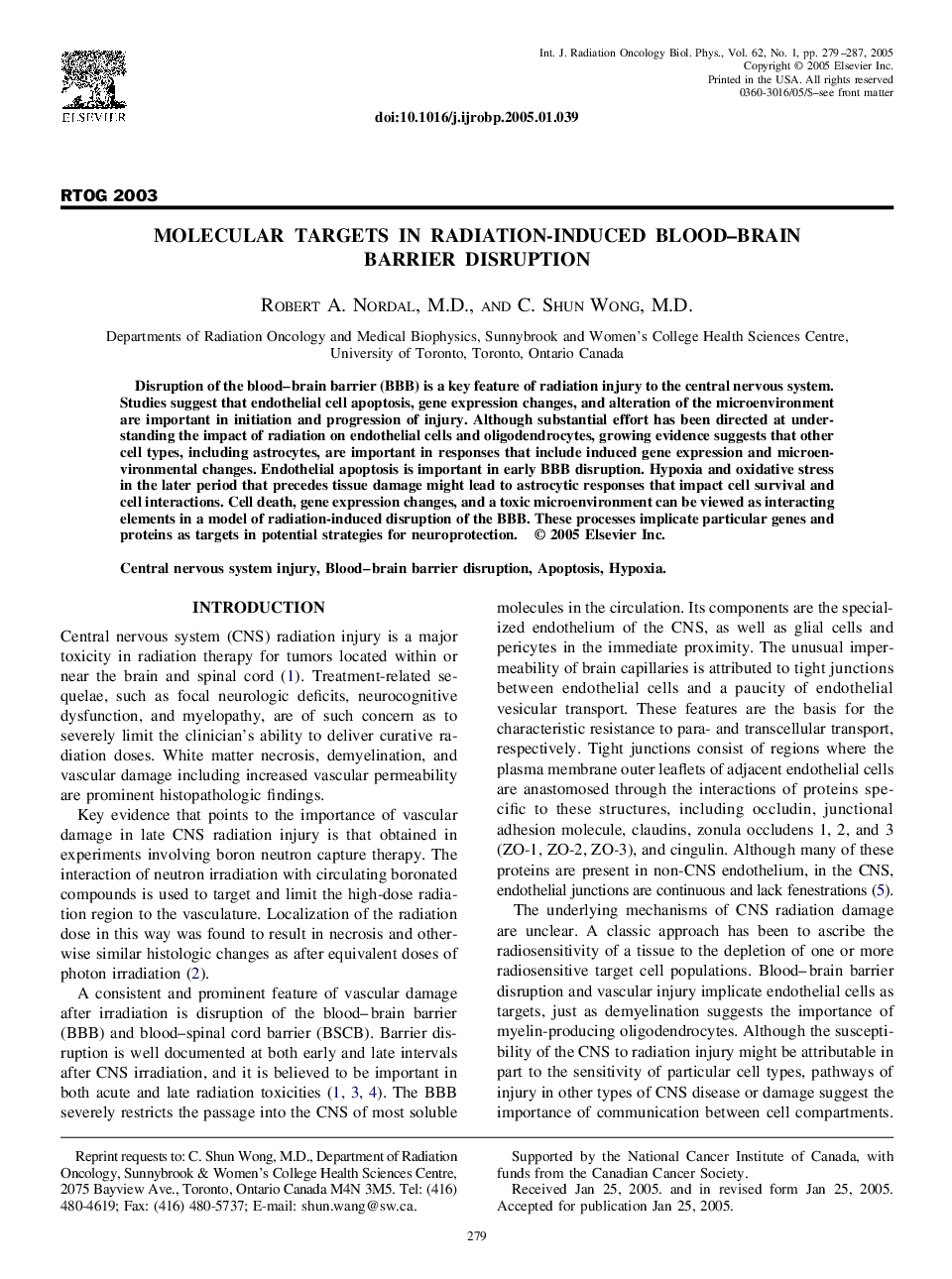| Article ID | Journal | Published Year | Pages | File Type |
|---|---|---|---|---|
| 9872534 | International Journal of Radiation Oncology*Biology*Physics | 2005 | 9 Pages |
Abstract
Disruption of the blood-brain barrier (BBB) is a key feature of radiation injury to the central nervous system. Studies suggest that endothelial cell apoptosis, gene expression changes, and alteration of the microenvironment are important in initiation and progression of injury. Although substantial effort has been directed at understanding the impact of radiation on endothelial cells and oligodendrocytes, growing evidence suggests that other cell types, including astrocytes, are important in responses that include induced gene expression and microenvironmental changes. Endothelial apoptosis is important in early BBB disruption. Hypoxia and oxidative stress in the later period that precedes tissue damage might lead to astrocytic responses that impact cell survival and cell interactions. Cell death, gene expression changes, and a toxic microenvironment can be viewed as interacting elements in a model of radiation-induced disruption of the BBB. These processes implicate particular genes and proteins as targets in potential strategies for neuroprotection.
Related Topics
Physical Sciences and Engineering
Physics and Astronomy
Radiation
Authors
Robert A. M.D., C. Shun M.D.,
